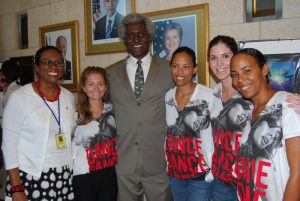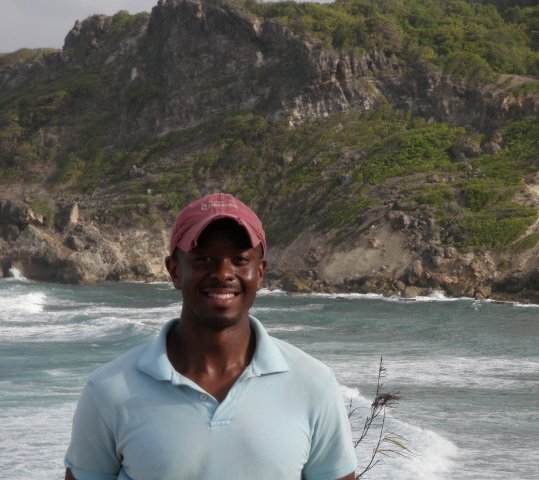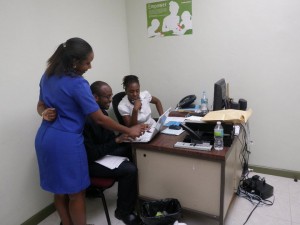 My Fulbright grant was one of the most rewarding and exciting experiences I have ever had, and no words, pictures or videos can adequately capture its true essence. By building relationships internationally, Fulbright provides an opportunity for college graduates and professors and teachers to shatter any misconceptions held by Americans and host countries. As Martin Buber said, “All journeys have secret destinations of which the traveler is unaware.” A Fulbright grant is a journey filled with “secret destinations” which one is unaware of at the beginning of his or her grant. There is a vast difference between experiencing a country for a few weeks as a tourist and living in a different country. An academic year overseas provides an opportunity to fully immerse oneself in a different culture, develop a new routine and identify favorite places. A Fulbright grant allows for meaningful friendships to develop and, in my opinion, they are the shortest route towards personal growth. Through this growth, one also gives others an example to do the same.
My Fulbright grant was one of the most rewarding and exciting experiences I have ever had, and no words, pictures or videos can adequately capture its true essence. By building relationships internationally, Fulbright provides an opportunity for college graduates and professors and teachers to shatter any misconceptions held by Americans and host countries. As Martin Buber said, “All journeys have secret destinations of which the traveler is unaware.” A Fulbright grant is a journey filled with “secret destinations” which one is unaware of at the beginning of his or her grant. There is a vast difference between experiencing a country for a few weeks as a tourist and living in a different country. An academic year overseas provides an opportunity to fully immerse oneself in a different culture, develop a new routine and identify favorite places. A Fulbright grant allows for meaningful friendships to develop and, in my opinion, they are the shortest route towards personal growth. Through this growth, one also gives others an example to do the same.
Living abroad disconnects us from life’s daily routines and the comfort and security that family, friends and networks can provide. So who are we once all of these things have been removed? How do we handle life’s issues when the usual buffers are no longer there? How do we adjust to a new environment in which we are foreigners? Through which eyes do we view our new world: astonished, intrigued or judgmental eyes? These types of experiences are “secret destinations” for Fulbrighters, for the manner in which one responds to being in a new environment has a direct correlation to one’s level of personal growth.
The Fulbright Program provides grantees a myriad of benefits: regional enrichment seminars, networking opportunities with other Fulbrighters, an opportunity to gain international experience and exposure in one’s field, and to establish professional networks, among other opportunities. Each of these benefits are extremely rewarding both personally and professionally, but it is the relationships with host country colleagues, housemates, mentors and friends that help promote the Fulbright Program’s goal of fostering mutual understanding between the U.S. and other countries.
The Application Process
My campus Fulbright Program Adviser (FPA) was my greatest asset while I applied. I met with my FPA weekly to discuss my project and help with completing my application. Additionally, one of my English professors served as a second reader to provide feedback on my application’s narrative flow. As I contemplated the focus of my Fulbright project, the best advice I received was to build on my previous experience (academic, professional and personal) and tell the story of how point A led to point B that finally resulted in my desire to apply to Fulbright. Sometimes, we tend to omit key details about our own stories because we are so familiar with them and erroneously believe the details are not significant. But these details are the threads that tie our personal stories together and allow an outside reader to grasp who we are and why our projects should be supported.
My Fulbright project sought to identify the breast cancer screening barriers which may hinder a woman from obtaining a mammogram. Adhering to the advice I received, this project became my story’s thread that connected elements of my previous experience together: the academic focus of my project was public health and psychology (which I had studied); I had research experience with breast cancer screening barriers under my belt (my mother is a breast cancer survivor); and finally, I have strong personal ties to the Caribbean.
How I Selected Barbados and Identified My Affiliation
I conducted a Google search and quickly ascertained that Barbados is the only Caribbean country with empirical epidemiological data about their population’s breast cancer incidence and mortality rates. Here are a few important questions to keep in mind while selecting a Fulbright country:
(1) Is there a need or interest in your research or project? Remember that the potential host country will review your application during the Fulbright selection process.
(2) Is there an institution, organization or individual familiar with your topic? This entity will become your advocate and may have access to information and opportunities that you may not be aware of.
Once I obtained the breast cancer incidence data, I contacted the researcher who conducted the study, articulated who I was, what I had accomplished and that I was applying for a Fulbright grant. Most importantly, I asked if he would collaborate with me. He read my proposal and provided a letter of support all within the same week.
 My advice to Fulbright applicants is to research your potential location, contact people and to always demonstrate professionalism and kindness in all interactions. Follow up with a thank you note. In an era of high speed technology, people still appreciate handwritten cards. This gesture will definitely be remembered.
My advice to Fulbright applicants is to research your potential location, contact people and to always demonstrate professionalism and kindness in all interactions. Follow up with a thank you note. In an era of high speed technology, people still appreciate handwritten cards. This gesture will definitely be remembered.
One of your application’s objectives is for you to stand out. What makes you and your project unique? Why should the Fulbright Program select you? How will your project impact and benefit the host country? What legacy do you plan to leave? Fulbright offers a plethora of benefits for you as a grantee, but it is up to you to determine how your host country will benefit from your time there and all the unique things you can bring. Convey this information in your application and good luck!
Top photo: Misha Granado, 2007-2008, Barbados (center), pictured with two high school students, was invited to present at a college fair that focused on university/college life in the United States.
Bottom photo: Misha Granado’s project mentors Angela Rose (left), Professor Ian Hambleton (center) and Professor Anselm Hennis (right) at The Chronic Disease Research Centre.



